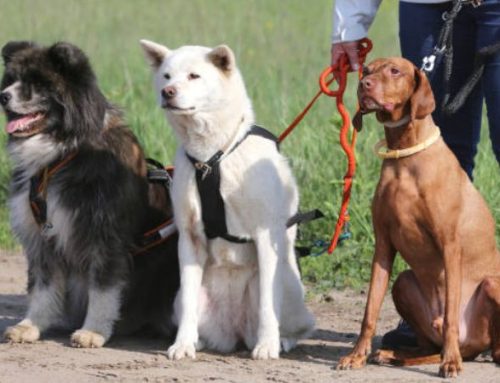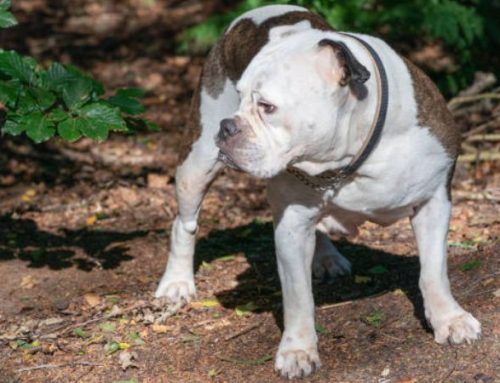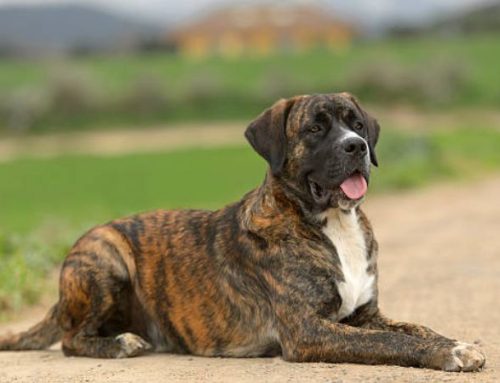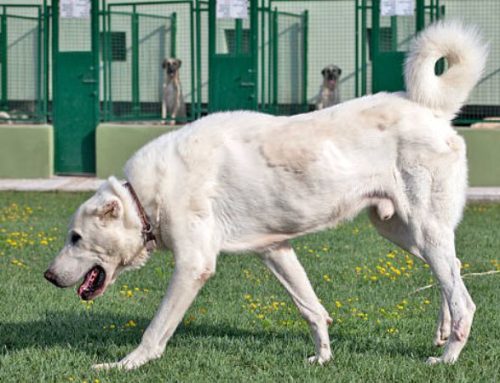With a gaze that feels both ancient and untamed, the Kanaani cat captures attention the moment it enters a room. This rare and experimental breed, though carefully refined in Germany, traces its roots back to the streets and alleys of Jerusalem, where wild instincts meet domestic charm. Sleek, athletic, and strikingly wild in appearance, the Kanaani isn’t just a cat it’s a living piece of history, curiosity, and elegance all rolled into one.
If you’re considering adding one of these extraordinary felines to your home, here’s everything you need to know about the Kanaani cat, from pricing and temperament to care and personality.
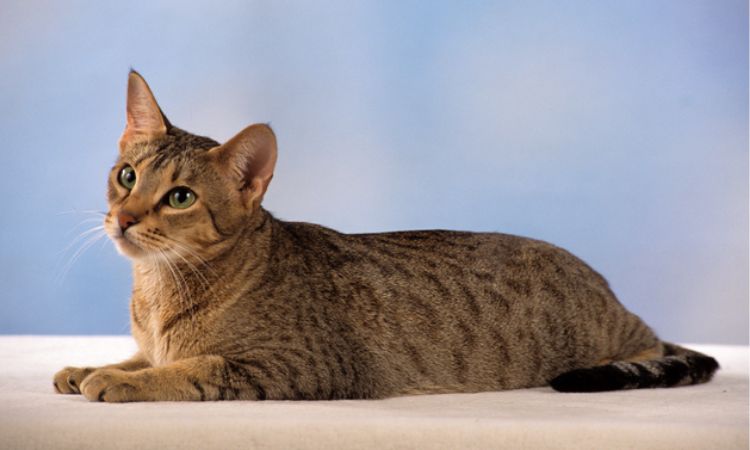
Breed Overview and Key Characteristics
The Kanaani cat is a rare and experimental breed with deep roots in the Land of Israel. Its development began in the 1990s in Jerusalem, led by Israeli artist and breeder Doris Polachek. The goal was to preserve the traits of the local wild steppe cat while creating a domestic feline that retained its wild beauty and instincts. To achieve this, Polachek crossed African Wildcats (Felis lybica) with domestic breeds such as the Abyssinian, Oriental Shorthair, and Bengal.
This careful breeding program resulted in a cat that is both athletic and elegant, with an unmistakable wild appearance. The Kanaani combines the alertness and agility of its wild ancestors with the social and affectionate qualities of domestic cats. Its distinctive traits—short, coarse fur, almond-shaped green eyes, and large, pointed ears—reflect this unique hybrid heritage.
The breed gained official recognition from the World Cat Federation (WCF) in 2008, making it the first nationally recognized cat breed from Israel. Despite its growing popularity among enthusiasts, the Kanaani remains a rare breed, highly valued for its beauty, personality, and historical significance.
Kanaani at a Glance
| Feature | Details |
| Weight | 7–12 lbs (3–5.5 kg) |
| Size | Medium to Large; athletic and muscular build |
| Life Expectancy | 12–15 years |
| Coat Type | Short, coarse, with minimal undercoat; patterns include spotted, marbled, or ticked tabby |
| Eye Color | Green (sometimes yellow-green in kittens) |
| Temperament | Energetic, highly intelligent, independent, yet social with proper socialization |
| Activity Level | Very active; requires ample exercise and enrichment |
| Compatibility | Best suited for experienced cat owners; can live with other pets if introduced properly |
The Kanaani cat is ideal for households that can provide plenty of space to explore, climb, and play. Its intelligence and independence make it fascinating to watch and engage with, but potential owners should be prepared for a high-energy, curious, and occasionally stubborn companion.
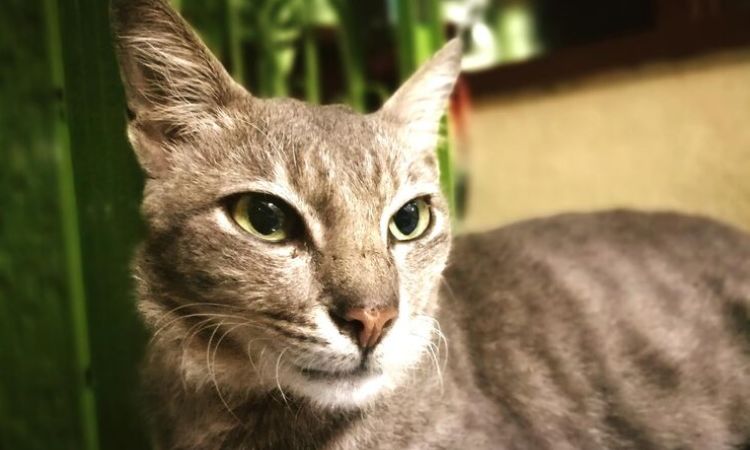
Kanaani Cat Price: Initial and Ongoing Costs
Owning a Kanaani cat is a commitment not just emotionally, but financially. This rare and exotic breed requires careful planning for both upfront and ongoing expenses. Below is a detailed guide to help prospective owners understand the costs involved.
Initial Kitten Price from a Breeder
Kanaani kittens are rare and primarily found in Israel, with very few breeders globally. Expect to pay $2,000–$5,000 USD for a pet-quality kitten. Prices can be higher for show-quality cats or kittens from exceptional bloodlines.
Factors Affecting Cost:
- Generation: First-generation hybrids or kittens closer to the African Wildcat lineage often cost more due to their rarity.
- Bloodline: Cats from award-winning or established breeders may command premium prices.
- Location: Importing a Kanaani kitten outside Israel increases costs due to transportation, quarantine, and import fees.
- Breeder Reputation: Established breeders who provide health guarantees and proper socialization will charge more than smaller, less-known breeders.
One-Time Startup Expenses
Bringing a Kanaani kitten home involves several essential purchases beyond the initial price:
Health & Identification:
- Vaccinations: Core vaccines to protect against feline diseases (~$100–$200).
- Spay/Neuter: Often required for pet kittens (~$200–$400).
- Microchip: For identification and peace of mind (~$50–$100).
Essential Supplies:
- Cat Carrier: For transport and vet visits (~$30–$100).
- Litter Box & Litter: Standard or self-cleaning (~$50–$150).
- High-Climbing Structures & Cat Trees: Kanaani cats are extremely active and need vertical space (~$150–$500).
- Other Accessories: Food and water bowls, scratching posts, and bedding (~$100–$200).
Annual Cost of Ownership
Kanaani cats are energetic, intelligent, and partially wild, which translates to ongoing expenses:
High-Quality Food & Diet:
- These cats have high activity levels and require nutrient-dense, protein-rich food.
- Expect to spend $500–$1,000 per year on wet and dry food, depending on their age, size, and activity level.
Routine Veterinary Care & Insurance:
- Annual check-ups, vaccinations, and preventative care: ~$200–$400.
- Optional pet insurance to cover injuries or illnesses: ~$200–$600 per year.
- Parasite prevention (fleas, ticks, worms) is recommended due to their outdoor exploration tendencies.
Enrichment & Toys:
- Kanaani cats have a high prey drive and need mental and physical stimulation.
- Puzzle feeders, interactive toys, and new climbing structures: $100–$300 per year.
Owning a Kanaani cat is an investment in both time and money. Initial costs can range from $2,500–$6,000 USD when factoring in the kitten price and essential startup items, while annual care costs may reach $1,000–$2,000 USD, depending on diet, veterinary care, and enrichment needs. Prospective owners should be prepared for these commitments to ensure a healthy, happy, and thriving Kanaani.
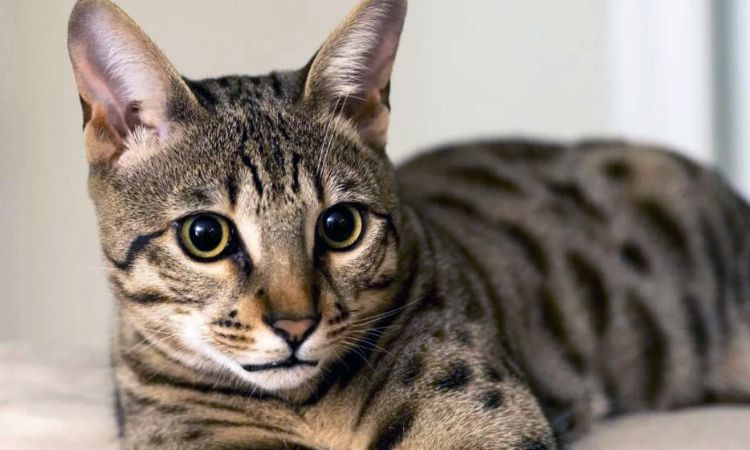
Temperament & Personality: A Wild Heart in a Domestic Cat
Energy and Activity Level
Kanaani cats are highly energetic and athletic. They require plenty of daily exercise to stay happy and healthy. Their agile bodies, strong hind legs, and natural climbing ability make them excellent jumpers, capable of reaching heights that surprise many owners. A typical Kanaani enjoys interactive play, such as chasing toys, leaping across cat trees, and exploring vertical spaces in the home.
Mental stimulation is just as important as physical activity. Puzzle feeders, treat-dispensing toys, and novel environments keep their sharp minds engaged. Without sufficient activity and enrichment, Kanaani cats can become bored, which may lead to destructive behaviors such as scratching furniture or opening cabinets.
Socialization and Affection
Kanaani cats are independent yet capable of forming deep bonds with their human companions. They are affectionate on their own terms—often initiating cuddles but not staying on laps for extended periods. Their intelligence and curiosity make them observant and interactive, often “talking” to their owners through a wide range of vocalizations, from chirps to full meows.
Socialization is crucial, especially early in life. Kanaani kittens are playful, energetic, and sometimes mischievous, so gentle guidance helps channel their instincts appropriately. While they enjoy human companionship, they generally do not suffer from separation anxiety and are content exploring their environment independently.
Living with a Kanaani
Kanaani cats can coexist with children and dogs, but careful introductions and supervision are necessary. Their energetic nature and occasional impulsiveness mean they can unintentionally startle or scratch younger children. With dogs, success depends on both animals’ temperaments, early exposure, and clear boundaries.
A critical aspect of Kanaani ownership is their high prey drive. They retain strong hunting instincts from their wild ancestry, making small pets—such as birds, rodents, or reptiles—at risk. Owners must exercise caution and consider segregating these animals or providing safe, secure spaces if other pets are present.
Care, Diet, and Health
Grooming Needs
Kanaani cats are low-maintenance when it comes to grooming. Their short, dense coats require only minimal brushing, typically once a week, though twice a week is recommended during shedding seasons in spring and fall. They are generally excellent at self-cleaning, so baths are rarely needed—and some may resist bathing altogether.
Maintaining proper nail and dental hygiene is important for this breed. Regular trimming of their claws prevents accidental scratches, and brushing their teeth several times a week helps reduce the risk of dental problems, which are common in cats. Using cat-specific clippers and gentle brushing techniques ensures a stress-free routine.
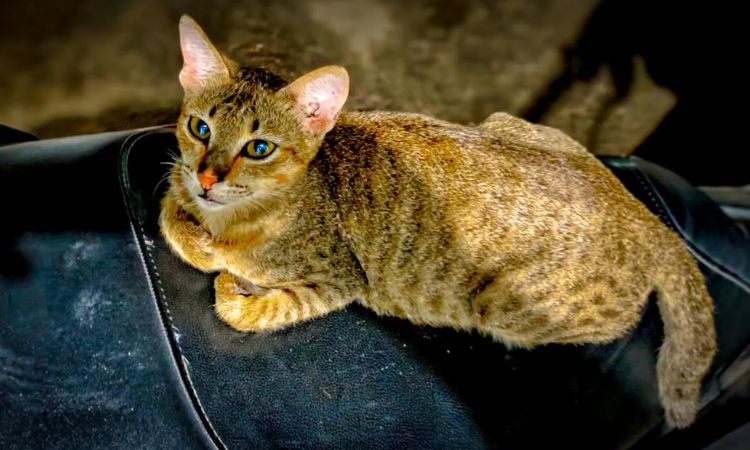
Feeding a Kanaani
Due to their high energy levels, Kanaani cats require a protein-rich diet to support their active lifestyle. A meat-based formula is ideal, and wet food can be included to provide extra hydration and help prevent urinary tract issues.
These cats may have sensitive digestive systems, so it’s important to introduce any dietary changes gradually and monitor for gastrointestinal upset. Feeding several smaller, measured meals per day is preferable to free-feeding, as Kanaani cats can overeat if given unlimited access to food. Consulting with a veterinarian for tailored dietary advice is strongly recommended.
Health and Wellness
Kanaani cats are considered generally healthy and robust, but their breed is still relatively new, so long-term health patterns are not fully established. Their wild ancestry makes them adventurous and sometimes prone to injuries, especially if allowed outdoors unsupervised.
Owners should take precautions against parasites, such as fleas, ticks, and intestinal worms, and keep up with preventative treatments. There are no widely recognized serious genetic conditions specific to the breed at this time.
The Kanaani cat combines wild beauty, high energy, and intelligence, making it a unique companion for experienced owners. Understanding their rare status, active nature, and specific care needs including diet, enrichment, and socialization is essential before bringing one home. Investing in a Kanaani means welcoming a loyal, playful, and independent feline that thrives in a stimulating environment and rewards dedicated care with a truly extraordinary presence.


